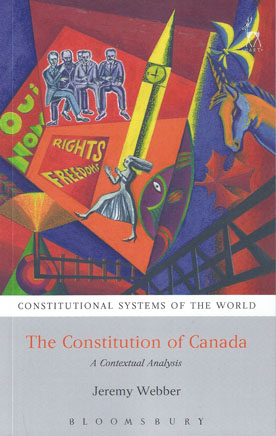
The book introduces and describes the principal characteristics of the Canadian Constitution, including Canada's institutional structure and the principal drivers of Canadian constitutional development.
The Constitution is set in its historical context, noting especially the complex interaction of national and regional societies that continues to shape the Constitution of Canada.
The book argues that aspects of the Constitution are best understood in 'agonistic' terms, as the product of a continuing encounter or negotiation, with each of the contending interpretations rooted in significantly different visions of the relationship among peoples and societies in Canada.
It suggests how these agonistic relationships have, to a limited extent, found expression in distinctive doctrines of Canadian constitutional law and how these doctrines represent approaches to constitutional legality that may be more widely applicable. As such the book charts the Canadian expression of trans-societal constitutional themes: democracy; parliamentarism; federalism; and human rights, and describes the institutional structure that has resulted from the interplay of these themes.